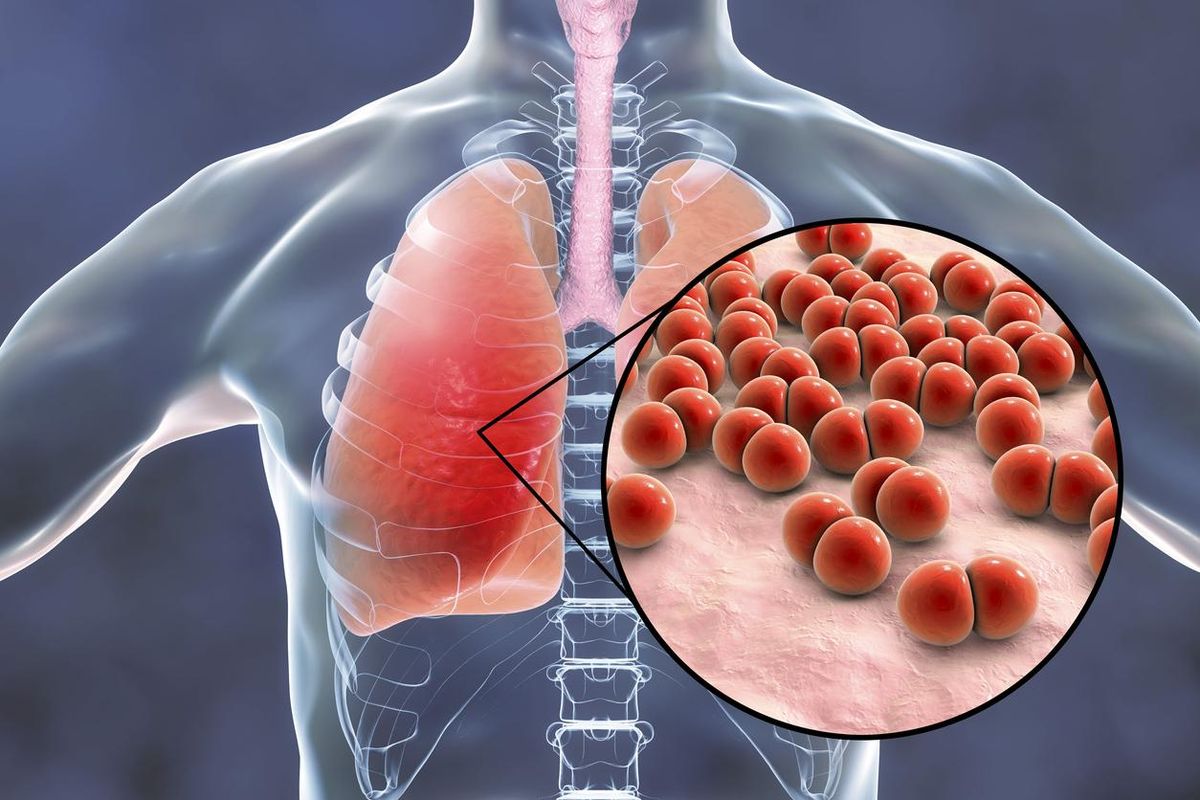
iStock.com/Dr_Microbe
What Is Pneumococcal Disease?
Learn about pneumococcal disease, how it spreads and how to prevent it
Oct 27, 2022
Aug 17, 2023
Your Health
Sarah Kim is a freelance journalist and writer. She holds a B.A. in Political Economy from Barnard College, Columbia University and M.S. from Columbia Journalism School. Her master's thesis project chronicled the various ways the justice and healthcare systems failed domestic violence survivors with disabilities. Sarah herself lives with cerebral palsy.
Her journalistic work focuses on the intersectionality of race, socioeconomic status, culture/entertainment, and politics on people with disabilities, particularly women. Sarah has written for TIME, Forbes, Glamour, The Daily Beast, The Mighty, Teen Vogue, Huffington Post, Columbia Journalism Review, and more. When she is not doing journalism, she works on a book in collaboration with Marcalee Alexander on sexuality and disability.
Follow her on Twitter @beingsarahkim
Full BioLearn about our editorial policies

Learn about pneumococcal disease, how it spreads and how to prevent it
Pneumococcal disease is an umbrella term for illnesses caused by bacteria called pneumococcus. There are more than 90 types of pneumococcus, and they’re the leading cause of community-acquired pneumonia (CAP). CAP is the type of pneumonia people get from non-medical community settings.
Pneumonia is a serious infection of the lungs. When you have a bacterial, viral or fungal infection, mucus or pus can build up in the air sacs in the lungs. If you have pneumonia, the buildup keeps oxygen from being transferred to the bloodstream, making it hard to breathe.
Influenza, known as the flu, is a specific viral infection of the respiratory tract, and it’s one of the common causes of pneumonia. Unlike pneumococcal diseases, the flu cannot be treated by antibiotics.
“Influenza works hand-in-glove with pneumonia,” said William Schaffner, M.D., a professor of infectious diseases at the Vanderbilt University Medical Center. Schaffner added that flu shots can help prevent pneumonia.
Pneumococcal bacteria mostly affect infants, toddlers and the elderly. The disease is transmitted through direct contact of bodily fluid, such as when coughing or sneezing. Sometimes people will carry the bacteria in their noses without becoming sick and transmit the disease to other people.
“Children are the great carriers and [spreaders] of pneumococci,” Schaffner said. “They can bring them home, and they can transmit these infections to their parents, grandparents and neighbors.”
Pneumococcal vaccines are part of the childhood immunization schedule, which means that it is recommended that every child get vaccinated against the disease. Schaffner said that the vaccine program has virtually eliminated serious pneumococcal disease in young children.
However, children can still transmit the disease to adults 65 years or over. And older adults are more likely to die from an infection due to preexisting conditions.
Risk factors for pneumococcal disease in adults include:
According to the CDC, pneumococcal pneumonia leads to about 150,000 hospitalizations per year. In 2019, pneumococcal meningitis and bacteremia — bacteria in the blood — caused approximately 3,250 deaths in the United States.
Around one in six elderly adults die from pneumococcal meningitis every year.
Although there are many different kinds of pneumococcal disease, there are some shared symptoms. These include fever, sensitivity to light, ear pain, chest pain, sore throat, difficulty breathing, loss of appetite, confusion, cough and headache.
Pneumococcal disease can often be found by testing blood, urine, or the fluid around your brain and spinal cord (cerebrospinal fluid). When the specific bacteria are identified, doctors use an antibiotic that targets that bacteria to treat the infection.
Vaccines can prevent pneumococcal disease. Two kinds of pneumococcal vaccines are available in the U.S.:
The PCV vaccines have a carrier protein that boosts their effectiveness, and PPSV doesn’t. Still, both vaccines are effective against most common pneumococcal bacteria. PPSV23 is recommended as a booster for people who have certain underlying conditions after they have been given a conjugate vaccine.
There are two recommended vaccination timetables, one for children and one for adults. It’s best to ask your healthcare provider about what’s best for you.
After being vaccinated, common side effects can include sleepiness, decreased appetite, fever, poor sleep quality and irritability.
It’s important to note that these vaccines provide good but not total protection, and it is possible to get sick after getting vaccinated. Also, because there are so many strains, you can get reinfected even after getting sick.
Currently, vaccines are the only preventive measures for pneumococcal disease. So, it’s best to get vaccinated as soon as possible. According to Schaffner, “Vaccinations are key to preventing serious pneumococcal disease.”
This resource was created with support from Merck.